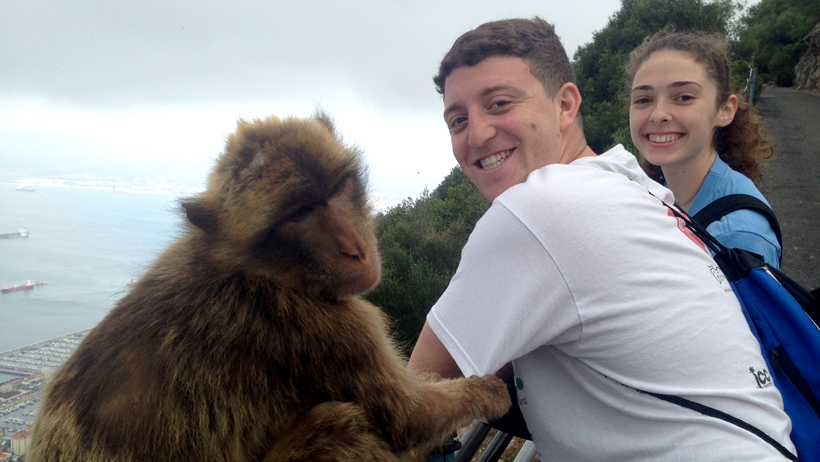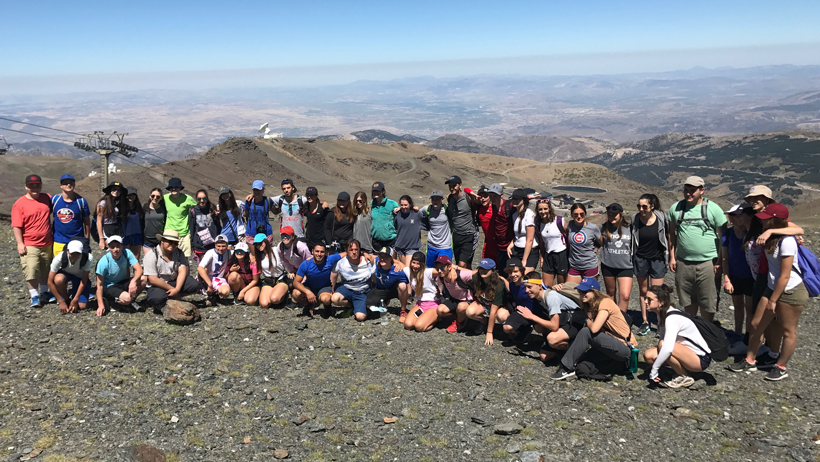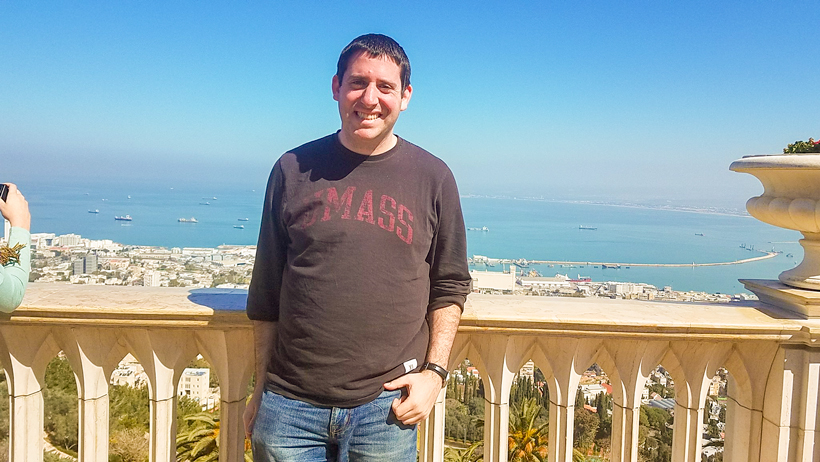I was fortunate enough to spend over two weeks this summer on a dream vacation in one of my favorite countries in the world, Spain. I explored the beautiful Sagrada Familia cathedral in Barcelona, cruised down the Guadalquivir River in Sevilla, and toured one of the biggest soccer stadiums in Europe (Real Madrid). It was a picture-perfect Euro-trip.
Did I mention I was also responsible for the entertainment and safety of 43 Jewish teenagers who were latched to my side at every step through España?
Over the past two summers I have been blessed to be a madrich (counselor) for two separate BBYO Passport trips, last year to Israel and this summer in Spain. While choosing such a route to see the world is not always the easiest or most stress-free, what I got from each trip was far more valuable than a few solid Instagram posts or a fancy souvenir from some tourist trap.

Leading a youth group trip has some great perks: It allows you to travel essentially for free, you forge new friendships with your co-staff, you even get a nice resume boost from the leadership experience. But none of these practical reasons is what makes this special for me.
To explain why, I should give you a little background on myself. Growing up, my family barely practiced Judaism. For example, I didn't even know lighting candles on Shabbat was a thing. Going to a Jewish camp would probably have helped with this, but I chose baseball during the summer. I did become a bar mitzvah, but Jewish education was not a priority for me growing up.
Like many Jewish 20-somethings in Chicago, I had been on a Birthright Israel trip during one of my college summers and had the time of my life, but it's hard to stop and smell the roses when you're trying to see the Holy Land in 10 days flat with a packed schedule and very limited time to sleep.
It was last summer while I was waiting to start my job that my girlfriend suggested I lead a youth group trip. I was skeptical. Yes, I had enjoyed Birthright and enjoyed my time as a camp counselor for elementary school kids, but I was fearful about how I would do in such a role. I was 21, not much older than most of the teens, and had never been responsible for other lives for three weeks straight. It's one thing to keep an eye on little Joey in the parking lot of a Chicago suburb; it's a whole other story trying to keep track of 40 teens racing down Ben Yehuda Street at night in the heart of Jerusalem.
In the end, I decided to go for it. If studying abroad taught me one thing, it's to never pass up the opportunity to travel and gain new experiences. So off I went, hoping to do my best to be a role model and authority figure for these Jewish teens when just months prior I was just a "kid" donning my cap and gown.

It'd be easy to sit here and tell you about all the cool adventures you go on, from rafting down the Jordan River, to hiking Masada. But there's also spending Shabbat at the Kotel, or running a fun program on the week's parsha (Torah portion) and other experiences and programs that you didn't know you were signing up for that end up meaning more.
What makes these trips special is getting to know the teens and learning all about their background. It was becoming a role model for the first time in my life by finding an open seat on a long bus ride and talking to a kid sitting by himself, or doing room checks at the end of the night to check in with the teens and hash out any issues they were having. It really forced me to be the most mature version of myself, while still maintaining that youthful playfulness it took to connect with these teens.
My favorite moment of that trip in Israel was also one of the most bittersweet. It took place in Jerusalem on the last Saturday of the trip. The whole group was gathered in the parking lot of Caesar Hotel. (If you have ever gone on Birthright or another organized trip in Israel, there is a good chance you have stayed at this rundown establishment on the outskirts of the Holy City.)
As per tradition, we gathered in a big circle, whipped out our candle, grape juice and spices, and belted out Havdalah at the top of our lungs. It was loud, it was spirited and it made me realize what these last few weeks meant for not only the teens, but for those of us who were responsible for them. After the last note rang through the night, everyone exchanged hugs and there were tears, but most of all there was an appreciation for the community that we had formed over three short weeks.
More than getting to travel, or be a role model, I got to experience what it's like to be a part of a real Jewish community for the first time. Some of you may have gotten your first taste of community from your overnight camp, some from your synagogue at home, or some from your network of friends and family (or all those things). But when you find it, you don't mistake it.
Suddenly, Israel wasn't just a place I read about in textbooks, and Shabbat wasn't just this day every week where electronics and fun go to die. This trip actually showed me the value of these fundamental Jewish traditions while partaking in them with teenagers and co-staff from all different backgrounds.
One of my favorite activities we did both summers was having the teens break off into small group and rank what aspects of Judaism were most important to them. Some of the many options were Shabbat, Torah, tzedakah, education, etc. My favorite of all those choices was community. It took building a Jewish community for me to finally embrace my religion and all of its traditions.
Some of you may have identified "community" as the top of your list a long time ago, but if you haven't found community yet, there's still time. If a kid who couldn't tell a Shabbat candle from a birthday candle can find his Jewish community leading teenagers around Spain, anything is possible -- you just have to put yourself out there.



.jpg)




.jpg)



